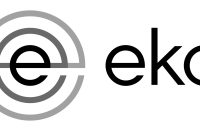New Analysis Demonstrates Successful Reduction or Withdrawal of Standard of Care Therapies in Patients Treated with Aficamten
SOUTH SAN FRANCISCO, Calif., Sept. 30, 2022 (GLOBE NEWSWIRE) — Cytokinetics, Incorporated (Nasdaq: CYTK) today presented new data on the reduction and withdrawal of background standard of care medical therapy in patients treated with aficamten in REDWOOD-HCM OLE (Randomized Evaluation of Dosing With CK-274 in Obstructive Outflow Disease in HCM Open Label Extension) in a Late Breaking Clinical Trials session at the 2022 HCM Society Scientific Sessions, the inaugural scientific sessions of this newly launched professional medical society, held in National Harbor, MD.
Patients in REDWOOD-HCM OLE were classified as receiving standard of care therapy if they were being treated with at least a beta-blocker, non-dihydropyridine calcium channel blocker, or disopyramide. Patients were eligible for background therapy reduction/withdrawal (BTR/W) at the discretion of the site investigator, only after Week 12 and after having received a stable dose of aficamten for at least four weeks. Of 42 patients enrolled at the time of this analysis, 39 (93%) were taking ≥1 standard of care medication, and of those, 27 (69%) were receiving a beta-blocker only, 4 (10%) were receiving a calcium channel blocker only, 7 (18%) were receiving disopyramide and either a calcium channel blocker or beta-blocker, and 1 patient (3%) was receiving all three therapies. Of the 35 patients who had completed treatment with aficamten through Week 12, BTR/W was attempted in 20 patients. 17 patients (85%) achieved successful BTR/W, defined as at least one dose reduction of one medication to ≤50% of the baseline dose. Ten patients completely discontinued at least one medication, and 5 withdrew from all standard of care therapies. BTR/W was unsuccessful in three patients, who reinstituted a beta-blocker as a result of recurrence of symptoms or elevated left ventricular outflow tract gradients (LVOT-G). NYHA functional class and NT-proBNP and high-sensitivity troponin I levels remained stable before and after BTR/W. In 14 patients with an available assessment before and after BTR/W, BTR/W resulted in an increase in resting heart rate of 12 bpm (mean HR=74 ±10 bpm, p=0.0001) and Valsalva LVOT-G of 15 mmHg (mean Valsalva LVOT-G=42 ±26 mmHg, p=0.02). These data suggest that patients who achieved successful BTR/W experienced similar benefits from treatment with aficamten as those who remained on background standard of care therapy, and warrants further study.
A photo accompanying this announcement is available at https://www.globenewswire.com/NewsRoom/AttachmentNg/7702de66-eaab-4997-92c5-4512c51cb4c6
“Standard of care medications used to treat HCM often have undesirable side effects. It’s encouraging to see this initial data suggesting that some patients treated with aficamten can reduce or cease treatment of background therapies and still experience substantial improvement in clinically relevant measures of efficacy,” said Fady I. Malik, M.D., Ph.D., Cytokinetics’ Executive Vice President of Research & Development. “We look forward to further investigation of aficamten as a potential monotherapy for patients with HCM in our planned second Phase 3 trial which will get underway later this year.”
About Aficamten
Aficamten is an investigational selective, small molecule cardiac myosin inhibitor discovered following an extensive chemical optimization program that was conducted with careful attention to therapeutic index and pharmacokinetic properties and as may translate into next-in-class potential in clinical development. Aficamten was designed to reduce the number of active actin-myosin cross bridges during each cardiac cycle and consequently suppress the myocardial hypercontractility that is associated with hypertrophic cardiomyopathy (HCM). In preclinical models, aficamten reduced myocardial contractility by binding directly to cardiac myosin at a distinct and selective allosteric binding site, thereby preventing myosin from entering a force producing state. The development program for aficamten is assessing its potential as a treatment that improves exercise capacity and relieves symptoms in patients with HCM as well as its long-term effects on cardiac structure and function. Aficamten received Breakthrough Therapy Designation for the treatment of symptomatic obstructive HCM from the U.S. Food & Drug Administration (FDA).
About Hypertrophic Cardiomyopathy
Hypertrophic cardiomyopathy (HCM) is a disease in which the heart muscle (myocardium) becomes abnormally thick (hypertrophied). The thickening of cardiac muscle leads to the inside of the left ventricle becoming smaller and stiffer, and thus the ventricle becomes less able to relax and fill with blood. This ultimately limits the heart’s pumping function, resulting in symptoms including chest pain, dizziness, shortness of breath, or fainting during physical activity. A subset of patients with HCM are at high risk of progressive disease which can lead to atrial fibrillation, stroke and death due to arrhythmias.
About Cytokinetics
Cytokinetics is a late-stage biopharmaceutical company focused on discovering, developing and commercializing first-in-class muscle activators and next-in-class muscle inhibitors as potential treatments for debilitating diseases in which muscle performance is compromised and/or declining. As a leader in muscle biology and the mechanics of muscle performance, the company is developing small molecule drug candidates specifically engineered to impact muscle function and contractility. Cytokinetics is preparing a U.S. NDA submission of omecamtiv mecarbil, its novel cardiac muscle activator, following positive results from GALACTIC-HF, a large, international Phase 3 clinical trial in patients with heart failure. Cytokinetics is conducting METEORIC-HF, a second Phase 3 clinical trial of omecamtiv mecarbil. Cytokinetics is also developing aficamten, a next-generation cardiac myosin inhibitor, for the potential treatment of hypertrophic cardiomyopathies (HCM). The company has announced positive topline results from Cohorts 1 and 2 in REDWOOD-HCM, a Phase 2 clinical trial of aficamten in patients with obstructive HCM. Cytokinetics expects to start a Phase 3 clinical trial of aficamten in patients with obstructive HCM in Q4 2021. Cytokinetics is also developing reldesemtiv, a fast skeletal muscle troponin activator, currently the subject of COURAGE-ALS, a Phase 3 clinical trial in patients with ALS. Cytokinetics continues its over 20-year history of pioneering innovation in muscle biology and related pharmacology focused to diseases of muscle dysfunction and conditions of muscle weakness.
For additional information about Cytokinetics, visit www.cytokinetics.com and follow us on Twitter, LinkedIn, Facebook and YouTube.
Forward-Looking Statements
This press release contains forward-looking statements for purposes of the Private Securities Litigation Reform Act of 1995 (the “Act”). Cytokinetics disclaims any intent or obligation to update these forward-looking statements and claims the protection of the Act’s Safe Harbor for forward-looking statements. Examples of such statements include, but are not limited to, statements relating to any of our other clinical trials, statements relating to the potential benefits of aficamten, or any of our other drug candidates, including whether aficamten will benefit patients with HCM as a monotherapy. Cytokinetics’ research and development activities; the design, timing, results, significance and utility of preclinical and clinical results; and the properties and potential benefits of Cytokinetics’ other drug candidates. Such statements are based on management’s current expectations, but actual results may differ materially due to various risks and uncertainties, including, but not limited to, potential difficulties or delays in the development, testing, regulatory approvals for trial commencement, progression or product sale or manufacturing, or production of Cytokinetics’ drug candidates that could slow or prevent clinical development or product approval; Cytokinetics’ drug candidates may have adverse side effects or inadequate therapeutic efficacy; the FDA or foreign regulatory agencies may delay or limit Cytokinetics’ ability to conduct clinical trials; Cytokinetics may be unable to obtain or maintain patent or trade secret protection for its intellectual property; standards of care may change, rendering Cytokinetics’ drug candidates obsolete; and competitive products or alternative therapies may be developed by others for the treatment of indications Cytokinetics’ drug candidates and potential drug candidates may target. For further information regarding these and other risks related to Cytokinetics’ business, investors should consult Cytokinetics’ filings with the Securities and Exchange Commission.
CYTOKINETICS® and the CYTOKINETICS and C-shaped logo are registered trademarks of Cytokinetics in the U.S. and certain other countries.
Contact:
Cytokinetics
Diane Weiser
Senior Vice President, Corporate Communications, Investor Relations
(415) 290-7757






